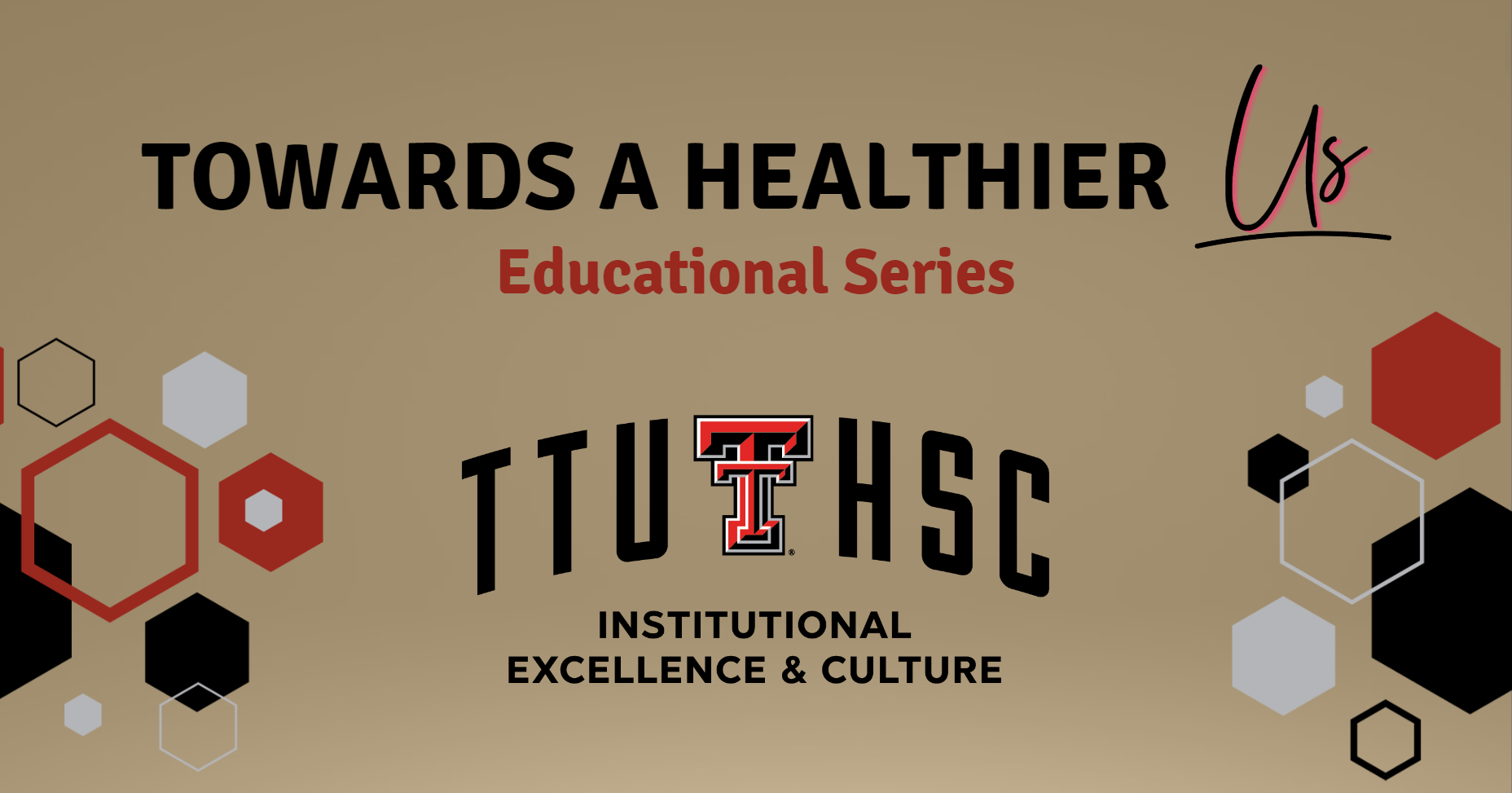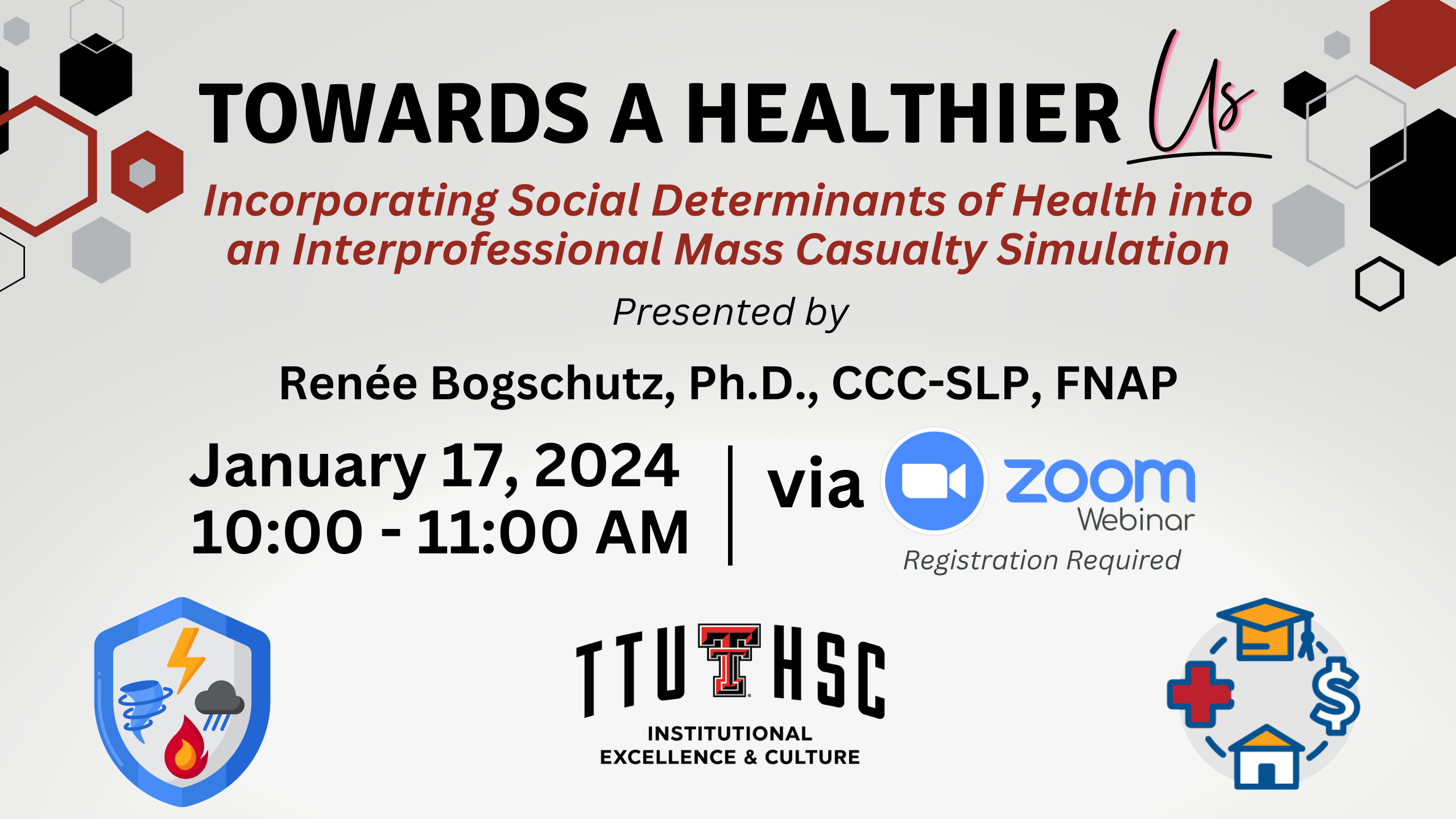Towards a Healthier Us

Knowledge Helps Us Thrive
Towards a Healthier Us is a series that educates on evidence-based practices that inform the ways our learners, practitioners, and patient populations converge in the pursuit of equal health outcomes. Participants can expect to come away from sessions with an enhanced foundational awareness of the social determinants of health and an advanced understanding of their role in a specific topic of interest. Sessions are offered by TTUHSC researchers and faculty with ongoing or completed projects that contribute to the knowledge base on healthier populations.
This virtual series is open to any TTUHSC learner or team member. A listing of previous and upcoming sessions can be found below:
Wednesday, January 17
Incorporating Social Determinants of Health into an Interprofessional Mass Casualty
Simulation
10:00 - 11:00 AM | Virtually via Zoom Webinar
Presented by Renée Bogschutz, Ph.D., CCC-SLP, FNAP
Assistant Provost for Interprofessional Education
View the Recording of this Session Here

Description: Mass casualty incidents have significantly increased in recent years due to a number of factors including natural disasters and terrorism. Disaster simulations are an effective method to illustrate social determinants of health and health equity, foster interprofessional development and team identity, and develop emergency response skills for health professions learners. During this annual event, interprofessional teams of learners come together to diagnose, treat, and care for standardized patients (SPs) impacted by a simulated natural disaster/public health emergency. Over 300 learners from a variety of health professions participated in simulations across 2 campuses. Assessment data indicated that learners, facilitators, and SPs agreed that interprofessional teams demonstrated skill development in all assessed areas including communication, collaboration, team functioning, roles/responsibilities, collaborative patient-family-centered approach, mutual trust/respect, consideration for social determinants of health, and conflict management. This intentional focus underscores the vital role of social determinants in shaping health outcomes during emergencies. This immersive interprofessional simulation experience equips learners to navigate emergencies through a heightened awareness of the intricate interplay between health disparities and social determinants, fostering a commitment to health equity in team-based crisis management.

